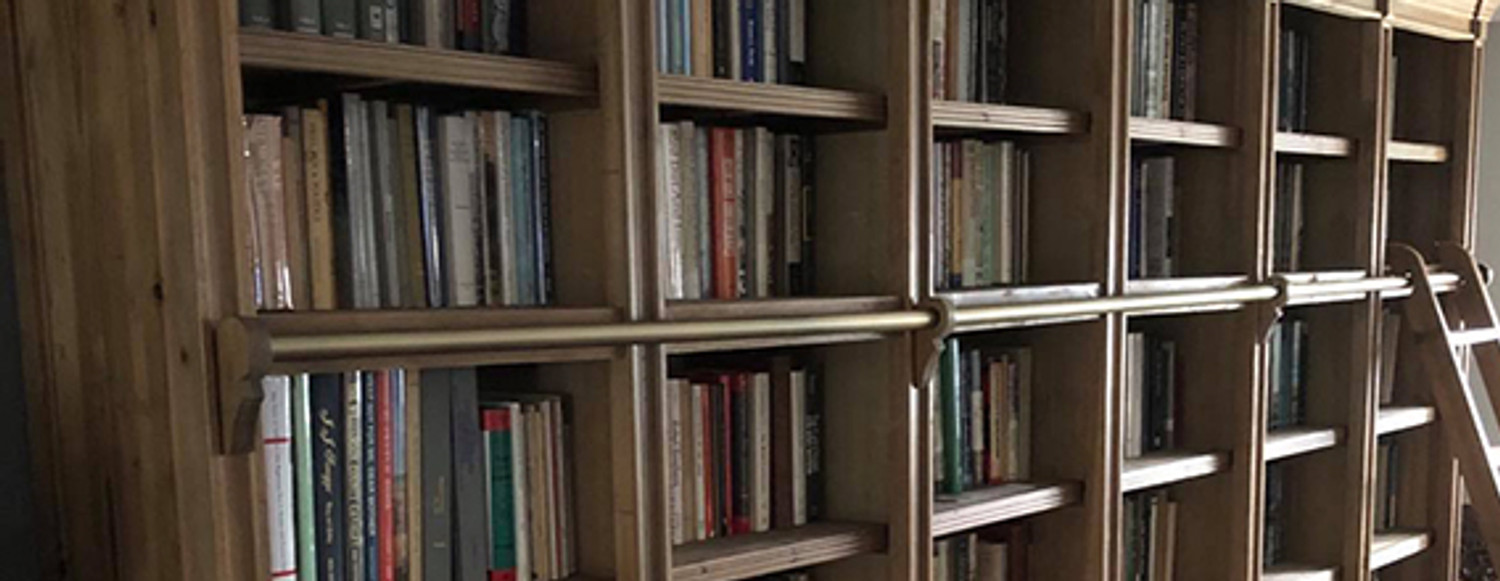
When people find out I collect Civil War books and own more
than 3,000, I’m usually asked two questions: “Why would anyone collect Civil War
books?” and “Have you read them all?”
No, I haven’t read them all! My obsession with books about
the “Late Unpleasantness” started when my mother bought me the newly released
Robert Tanner’s Stonewall in the Valley: Thomas J. “Stonewall” Jackson’s Shenandoah Valley
Campaign, Spring 1862 (Doubleday,
1976). I’ve been buying and selling books ever since.
If you take the time, really take the time, to appreciate the
physical books you discover each has its own personality. Like your kids, they
look different, and speak to you differently. Getting shelves to organize and
display them is a real pleasure. They are part of you and your home. You leave
notes inside some, bookmark certain locations.
They become old friends. When I have a spare hour I often
crack one open and reread an Introduction or Conclusion. It’s like picking up
the phone and calling someone you haven’t spoken with in a long time. You know
the saying “A home without books is like a person without a soul.” Truth.
After a while—and it doesn’t take long—you begin to have
favorites. Mine are my first editions written by Maryland veterans. And I love
seeing them out. While I enjoy hitting the battlefields with good friends, I
really loved visiting a good used bookstore or going to a Civil War Book and
Relic show to search for titles to build my collection. I traded books there
for others, bought and sold some, and really got to know the market.
The Civil War book niche is a small world and collecting makes
it smaller. I’ve made many great friends over the years while collecting,
sharing, and reading Civil War titles, including book dealers, small publishers,
licensed battlefield guides, park rangers, and other enthusiasts like me.
Giants in the hobby back then included Bob Younger of Morningside
Books, Tom Broadfoot of Broadfoot Publishing, Jim McLean at Butternut and Blue,
Dave Zullo of Olde Soldier Books, Clark Kenyon of Camp Pope Bookshop, and a few
others. These larger-than-life personalities often reprinted scarce and
desirable titles. If you love Civil War books, and have the itch to collect,
you know what I mean.
Unfortunately, many of these book dealers and small publishers
have retired over the past couple decades, usually forced out of business by
companies like Amazon and eBay, who intentionally engage in price-cutting to
drive others out of the market. The Internet helped build our hobby and kill
it. One hand gave, the other took away.
Who is left? Tom the Tar Heel is getting up there in years
and has done his duty. He’s about ready to fish full time. About the only small
publisher left is Theodore Savas of Savas Beatie. Ted and me have a long
history.
I was living in Maryland when I started buying some of his
books in the early 1990s. He began publishing
as Savas Woodbury, and a few years later as Savas Publishing. I was an early
subscriber to his quarterly journal Civil War Regiments. (Wish he would
start it again!) About six years ago my career took me from Maryland to
California, and it didn’t take long for Ted and I to get together. He invited
me to one of his rock concerts with his band Arminius, and tricked me into
hauling his amps and equipment in exchange for hanging out with a bunch of old
dudes.
I don’t go to his office too often because his dog Kenya,
the pit bull, doesn’t like me much. But that’s a story for another day.
Over the last couple of years I’ve been harassing Ted to
fill the void left by the other dealers and publishers who are no longer in business.
I’m sure he grew tired of my incessant nagging. No joke. I nagged him
relentlessly. Sometimes he wouldn’t take my calls. He finally gave in and
reprinted The Bachelder Papers, which was a big expensive risk. Covid
hit right after he sent them to the printer.
Fortunately for everyone, the set was a huge success. I can
tell you Ted and his staff were blown away when dozens of customers posted
photos of the set online, emailed them, and even called to talk about them. “These
people are happy because you made it possible to get this amazing resource for a
very reasonable price,” I told him. “And it’s quality. No one else is listening
to them.” They had been going for $750-850 on the used book market. Less than
$200—and 100 signed/numbered?
That’s a steal.
2020 was a tough year for many small businesses, but I kept
nagging. This time he took my calls. “Do Bachelder’s Gettysburg history!” I
insisted. “Talk about a scarce book—it’s the ‘fourth’ volume of The Bachelder Papers.”
I even volunteered mine for him to destroy and scan. That’s at the printer now.
Ted was friends with the late Ed Bearss and decided to
reprint his Vicksburg trilogy. (He was going to fly and see Ed and hand him a
fresh new set.) He got fancy with color maps (donated by Hal Jespersen in Ed’s
memory), dust jackets, and more. And many missed out on the original Papers so
Ted ran off another 300 sets.
The Internet also gave us chat forums and our love-hate relationship
with Facebook. How many of us would know one another without it, and if we hadn’t
been buying and reading Civil War books. Some on those groups have been very
close friends over the past decade. If I hadn’t been collecting, I would have
never met all these fine people, or hauled amps until my back hurt.
Oh, there is also a third question I get asked. “Don’t these
books cost a lot of money?” A guy asked me that recently.
I pointed out that he pays $4.00 a day for a cup of sweet
coffee and eats out for lunch or dinner several times a week, and pays a couple
hundred a month for cable packages, 99% of which he never watches. “What’s all that
cost you?” I asked. “What do you have to show for it? Dude, do the math. I have
a large room full of friends, you have 20 extra pounds.”
A book lasts a lifetime and provides endless hours of
pleasure and knowledge. Some go up in value, some go down. Coffee is with you
for an hour and then you get rid of it.
So if you collect, keep at it. If you don’t, consider doing
so, find your favorite area, and share your knowledge and experiences with
others.
Take care and I hope to see many of you online, walking the battlefields,
or visiting book and relic shows trying to find that elusive book you are seeking.
-- Mark Wade

